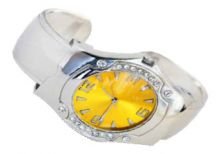Counterfeit and Illegal Goods - New Powers Granted to the State
Illegal and counterfeit goods have become a "hot topic", with much news coverage of the consequences of illegal downloading and internet piracy. But the new powers granted aim to crack down on all counterfeit and illegal goods, including those found in Sunday markets.
Two pieces of legislation (the Trade Mark Amendment Act and the Copyright Amendment Act) were passed on 15 September 2011, bringing changes that give powers to Enforcement Officers, Customs and Police for this purpose.
The changes target illegal and counterfeit goods. Commerce Minister Hon. Simon Power advises the new powers will allow the Ministry of Economic Development National Enforcement Unit ('the Ministry NEU') and the Customs Service ('Customs') to investigate and prosecute people involved in the manufacture, importation, and sale of illegal goods. These powers came into force in October.
The impact of the granting of investigative, search and seizure powers to the Ministry NEU and Customs means that these Departments can work together with Police and private individuals, companies and other entities holding rights under copyright or trade marks to prosecute the criminal offences of importing and selling counterfeit goods and pirated works.
The Government is advising that the Ministry NEU and Customs will be focused on counterfeit or other illegal goods, and that "responsibility for protecting and enforcing copyright and registered trade marks still lies with the rights holders". Rights holders will not be able to rely on or expect the Enforcement Officers to enforce rights on their behalf.
The Acts will allow Customs greater powers at our country's borders through their increased rights to seize property, question suspected offenders, and investigate goods entering the country that may be counterfeit.
The aim of the legislation is to restrict the flow of illicit goods into New Zealand, and thereby increasing consumers' confidence that they are buying genuine household products and luxury goods. The Government has said that "Illicit traders are moving beyond luxury items and into common everyday household products such as medicines, car parts, electronic equipment, and food products", and do not concern themselves with health and safety considerations.
Enforcement Officers will be able to deal with anyone selling goods in public, including markets, stalls and fairs, which are often rife with counterfeit goods. Enforcement Officers have the right to enter any public area, including shops, stalls and markets to investigate without being required to obtain a search warrant. They may also apply for a search warrant to allow them to enter and search private property to investigate non-compliance with the Acts.
The Trade Marks Act now also provides for greater international protection of trade marks, permitting New Zealand to join international treaties such as the Madrid Protocol, which allows protection in up to 84 Countries with one trade mark application, and one fee.

